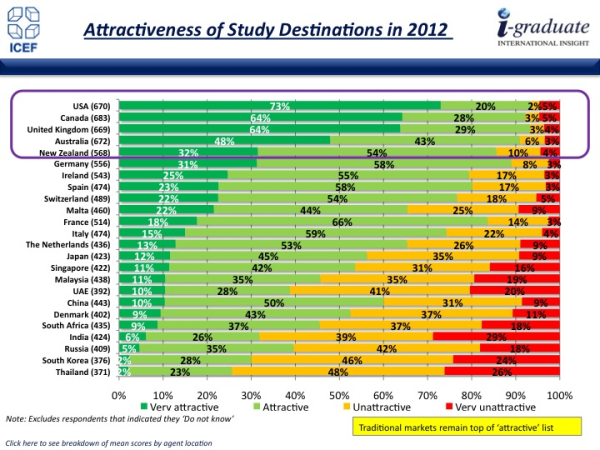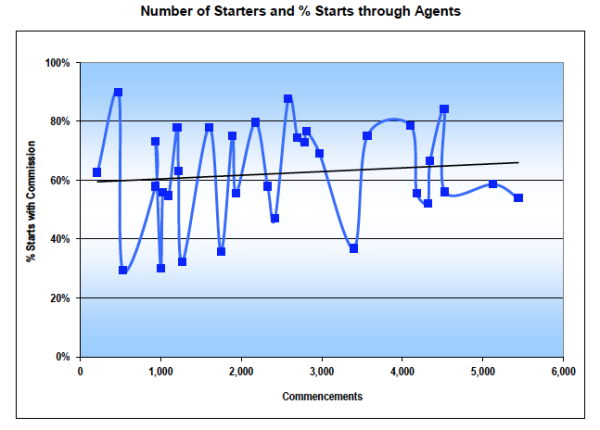Will the use of commission-based recruitment by U.S. higher education grow dramatically in the near future? We are wondering this, of course in part, because of the decision by NACAC to tolerate the use of commission-based recruitment by their members. Universities may feel less constraint to admit that they are using agents and encouraged to add this recruitment channel. Furthermore, more universities are increasing their emphasis on international enrollment as an additional revenue source. And yes, everybody is looking to diversify their student body as well.
I have been traveling in Australia and talking to our colleagues about their approach to international student enrollment. The differences are striking. First of all, internationalization and international student enrollment has a very high priority for all Australian universities. No wonder, given that more than 20 % of all enrolled students are international across all 40 Australian universities. Some institutions report 35 to 45 % international enrollment.
And now let's go straight to our U.S. issue of "to use or not to use commission-based recruitment." That issue does not exist in Australia. Everybody uses this channel extensively from the highest profile research university to the not-so high profile university. The Chart below from a data rich report published by Alan Olsen shows the percentage of newly enrolled students who arrived with the support of commission-based agents. On average, 63% of all students are recruited via this channel by the 33 academic institutions reported in this study.
Source:SPRE, October 2013
If you are interested in more details from this report that we considered noteworthy, please check out our INTEAD Insight on Analyzing Recruiting Costs.
In the United States, we don't have comparable data available, at least not on the scale and reliability provided in Australia on that topic. We also have to note that there is a difference between students and their parents engaging agents versus universities collaborating and having marketing relationships with agents to increase their enrollment. iGraduate reported last year that 43% of Chinese students surveyed used an agent. Our own work and research shows that students and parents are looking for all possible sources of advice.
- Word of mouth and friends matter greatly and are trusted more than anybody else.
- Digital information of all types such as university websites, third party rating sites, social media, webinars, digital tours are becoming a source of additional information.
Let's not forget that the choices for students and the marketing by universities from around the globe are only increasing, making the decision making process harder not easier in many instances.
The situation is no different than in the U.S., where the independent counseling business has grown to supplement high school counselors; agents are a source of advice, in particular, for students and parents who do not speak English and/or have a very limited knowledge of higher education outside their home country. Agents already play a dominating role for English language programs and advice on pathway programs, which are common in Australia and the UK.
Our view: Agents matter and we assume that more U.S. universities will increase their use of agents and their investment in adding commission-based recruiting into the recruitment mix.



